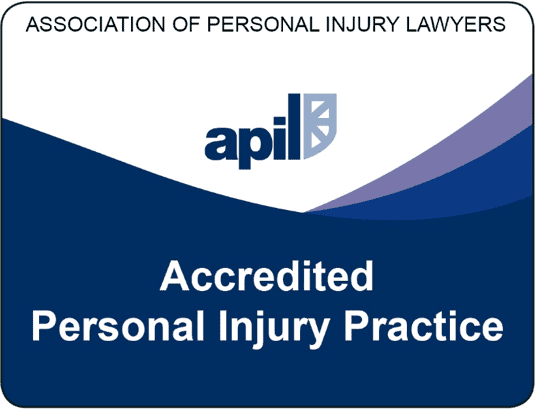Do Optometrists Owe a Duty of Care?
In what is seen to be the first of its kind in the UK, a Boots optometrist has been taken to court for negligent manslaughter following the death of a boy she had previously examined.
One of the things that an optician is trained to spot in a check-up is a papilledema, which is detected by looking at the interior of the eye. Papilledema is a swelling of the head of the optic nerve, which in turn is caused by increased cranial pressure. If undetected, it can be fatal.
Eight-year-old Vincent Barker attended his local Boots in Ipswich for a routine eye check-up in February 2012. Unfortunately, Vincent’s papilledema was not detected. After feeling unwell at his local school, Dale Hall Primary, in July 2013, he was sent home and died later that day. The optician, Ms Rose, has been suspended from the General Optical Council (GOC) registers since March 2013 following the incident.
As this is the first time an optician has faced this charge, it differentiates the case from many other medical negligence cases when criminal prosecution is sought. The maximum penalty for negligent manslaughter is life imprisonment.
The Scottish equivalent of this would most likely be involuntary culpable homicide. This is because the optician lacked the intent to kill her patient, or alternatively, there were mitigating circumstances involved that would not make this as serious as murder or homicide. The fact that criminal prosecution is even being considered demonstrates the severity and the uniqueness of this case.
What is Medical Negligence?
Medical negligence can be defined as an act or omission by a medical professional that causes their patient to suffer an injury. You can read more information on our definition here.
Certainly, as a medical professional, a doctor owes a duty of care. But in this case, an optometrist can only detect the defect (such as cranial pressure). They would have to refer the patient to a specialist for treatment. However, it is likely that the tragedy would have occurred even if the boy had not gone for his check-up, as the papilledema would have still been undetected. That said, this is one of the key things that opticians are trained to look for, as examining your eye in this way can indicate the first signs of intracranial pressure.
In medical negligence cases, a compensation claim is brought in the civil courts. Criminal prosecution is generally reserved for the more serious injuries or accidents, and is extremely rare. It should also be noted that to criminally prosecute, the test is higher – the medical professional must have been ‘grossly negligent’ rather than simply falling below the expected professional standard expected. As such, criminal prosecution will only follow where the medical professional’s act or omission is particularly severe and amounts to conduct that is prohibited under the criminal law.
What is a Duty of Care?
A duty of care arises when someone is obligated by law to make sure someone that they are in charge of is reasonably protected from harm or injury.
It was first established in Scotland as a legal principle by the 1932 case of Donoghue v Stevenson. In this case, a woman suffered from gastric problems after drinking ginger beer from a bottle that contained a decomposing snail. Although Mr Stevenson had not made the beer but served it, he was held as owing Ms Donoghue a duty of care. The court held that you owe a duty of care to your neighbour, who is defined as someone so “directly affected by my act that I ought reasonably to have them in contemplation as being so affected when I am directing my mind to the acts or omissions which are called in question”.
What is a Breach of Duty of Care?
A breach of duty of care arises when:
- the person that caused the injury voluntary acts or fails to act (a failure to act is known as an omission);
- the act or omission resulted in harm or injury to the person who was injured;
- the act or omission was as a result of careless conduct by the person who caused the injury (negligence)
You can read more about the duty of care principle in our previous blog here.
How Can Lawford Kidd Help?
We have a fantastic track record in medical negligence claims.
With a friendly and enthusiastic team of expert medical negligence lawyers, we will treat your claim with the utmost confidentiality and empathy. Furthermore, unlike pursuing your claim with other law firms or claims companies, you will have a qualified solicitor assisting you from start to finish. We will also make sure that you receive 100% of the damages you are awarded. The Chambers Directory for 2014 ranked us in the top ten personal injury firms in Scotland, and the Legal 500 have put us in the top three. We have been praised as a “top firm full of great, down-to-earth lawyers”. Additionally, we are one of the few Scottish law firms to act only for claimants.
Our approach is simple: through our ‘no win, no fee’ service, we will ensure you get the best possible result through friendly advice which is also straightforward. Concepts like duty of care discussed above can seem quite academic, which is why our solicitors can give you simple advice which puts these concepts into context. Try our compensation calculator before you see us to get an idea of how much you could claim.
We recently won a claim for an older lady who fell off a stool whilst getting her eyes tested at the opticians. Her fall resulted in her sustaining soft tissue injuring and developing tinnitus. You can read more about that by clicking this link. However, the case mentioned above is unprecedented in Scots and UK law, as an optician has not been held before as having a duty of care to their patient.
You can read more about our team’s achievements here and our testimonials from clients here. If you think you have a claim, call us today on 0808 301 8258 or fill out our online form so that we can get in touch.











